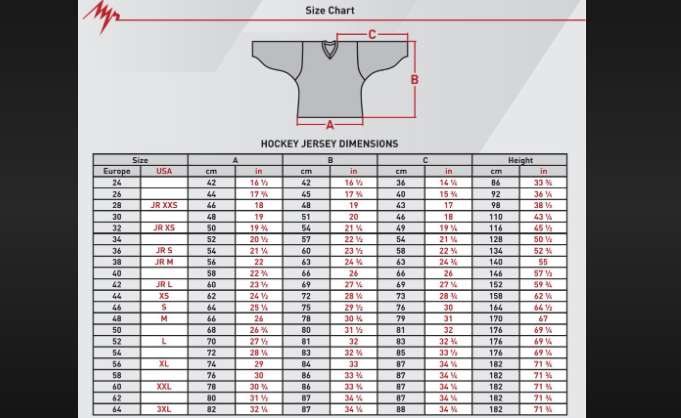Unveiling the Weight of Jerseys: How Much Does a Jersey Weigh?
In the world of sports and fashion, jerseys hold a special place as iconic symbols of team pride and individual fandom. As fans and athletes alike appreciate these garments, questions often arise about their attributes, including the weight of jerseys. This article dives into the world of jerseys, exploring the factors that influence their weight and providing insights into the various types of jerseys worn in different contexts.

Football equipment ranked
Section 1: The Significance of Jerseys
Before we delve into the weight of jerseys, it's important to recognize their significance.
Jerseys are more than just clothing; they represent teams, players, and a sense of community among fans.
Whether worn by athletes during competitions or proudly displayed by fans, jerseys hold a cherished place in the world of sports.
Section 2: Factors Influencing Jersey Weight
The weight of a jersey can vary based on several factors:
- Fabric Composition: Jerseys are crafted from different materials, such as lightweight synthetic fabrics, cotton blends, or moisture-wicking materials. The choice of fabric significantly impacts the weight.
- Style and Type: Jerseys come in various styles, such as replica jerseys for fans and performance jerseys for athletes. The weight can vary depending on the type of jersey.
- Embellishments: Logos, patches, and additional designs on the jersey can contribute to its weight. Embellishments vary based on the purpose of the jersey.
Section 3: Weight Ranges for Different Jerseys
Athletic Jerseys:
- Basketball Jerseys: Basketball jerseys worn by players during games are typically lightweight and designed for optimal movement. They generally weigh around 0.5 to 0.7 pounds (227 to 318 grams).
- Football Jerseys: Football jerseys, often worn with pads, can vary in weight. On average, a football jersey weighs approximately 1 to 1.5 pounds (454 to 680 grams).
Fan Jerseys:
- Replica Fan Jerseys: Replica jerseys designed for fans are often lighter than athletic jerseys. They typically weigh between 0.2 to 0.4 pounds (91 to 181 grams).
- Authentic Fan Jerseys: Authentic fan jerseys, featuring higher-quality materials and additional details, might weigh slightly more than replica jerseys, around 0.4 to 0.6 pounds (181 to 272 grams).
Hockey Jerseys:
- Hockey Jerseys: Hockey jerseys, known for their durability and moisture-wicking properties, can weigh between 0.5 to 0.8 pounds (227 to 363 grams) due to the added padding.
Soccer Jerseys:
- Soccer Jerseys: Soccer jerseys are often lightweight and designed for breathability. They generally weigh around 0.2 to 0.4 pounds (91 to 181 grams).
Section 4: Understanding the Variation
It's important to note that the weight ranges mentioned above are approximate and can vary based on brand, design, and specific features.
Manufacturers may also experiment with different fabrics and technologies to enhance comfort and performance.
Section 5: Practical Considerations
The weight of a jersey is influenced by its intended use.
Athletes require jerseys that allow freedom of movement and comfort during play, while fan jerseys prioritize style and comfort for everyday wear.
Section 6: Caring for Jerseys
Proper care of jerseys is essential to maintaining their quality and preserving their weight.
Follow manufacturer guidelines for washing, drying, and storage to prevent unnecessary wear and tear.

Hockey jersey dimension
The weight of a jersey is a multifaceted aspect influenced by fabric, style, and purpose. Whether you're a dedicated fan proudly wearing a replica jersey or an athlete donning a performance jersey on the field, understanding the weight adds another layer of appreciation for these cherished garments. As jerseys continue to evoke team spirit and individual pride, their weight becomes a subtle reminder of the larger community they represent.